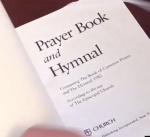FOR IMMEDIATE RELEASE
Cornel West to Teach Free, Online Course
“CALLED TO COMMON GOOD:
ECONOMIC INEQUALITY AND WHAT CHRISTIANS CAN DO ABOUT IT”
Open to anyone in the world between January 11-21
December 29, 2014, BLOOMFIELD HILLS, MI – Cornel West, prominent intellectual, author, and cultural critic, will teach an online course on economic inequality that is open to all, from January 11-21. This is an opportunity to learn about one of the most pervasive problems in the U.S. from one of the most thought-provoking teachers of our time.
The online course derives from the Trinity Institute’s 2015 “Creating Common Good” conference on economic inequality and is offered through ChurchNext, a leader in online Christian education. The class, a series of video lectures and discussions, can be taken anytime between January 11-21. No special software is required. It will take an average learner about 45 minutes to complete. Registration is free and open worldwide beginning today. (Click here for more information or to register.)
Dr. Cornel West has often spoken out for justice and equality, specifically what American Christians are called to do about it; the Trinity Institute, a program of Trinity Wall Street, is an annual conference, now in its 44th year, aimed at gathering clerics and intellectuals to discuss matters of deep significance. The upcoming 2015 conference focuses on the often-overwhelming issue of economic inequality. (Click here for more information on the Trinity Institute.)
Throughout Called to Common Good, participants are encouraged to think about and discuss economic injustice and moral responsibility. Dr. West explores the problem of inequality, notions of public and private justice, and how communities can effect change. He contends that “no matter how extreme inequalities are, we’ve always got a common humanity,” which is why, he adds, “I cannot be an optimist but I am a prisoner of hope.” During the class, representatives from Trinity Institute will be on hand to respond to discussions.
Online learning hub ChurchNext has partnered with Trinity Institute to present Dr. West’s course as well as four other previously-released courses taught by Archbishop of Canterbury Justin Welby, educational advocate Nicole Baker Fulgham, evangelical blogger Rachel Held Evans, and Julio Murray, Episcopal bishop of Panama.
Called to Common Good is a worldwide online learning course for all who are interested in social justice and the Christian faith and is free, thanks to the support of Trinity Institute, The Episcopal Church, and Forward Movement.
Trinity Institute is an annual conference, now in its 44th year, that equips clergy and laypersons for imaginative and catalytic leadership. The conference is sponsored by Trinity Wall Street, an Episcopal parish in New York City. Trinity Institute takes place at Trinity Church in New York City and is streamed at Partner Sites (which are often churches and seminaries) throughout the world. For more information, visit https://www.trinitywallstreet.org/trinity-institute/2015/what’s-ti2015
ChurchNext creates online Christian learning experiences that shape disciples. Along with our partners we are devoted to helping people grow in their Christian faith, improve their lives, and better the world. Learn more at http://churchnext.tv





